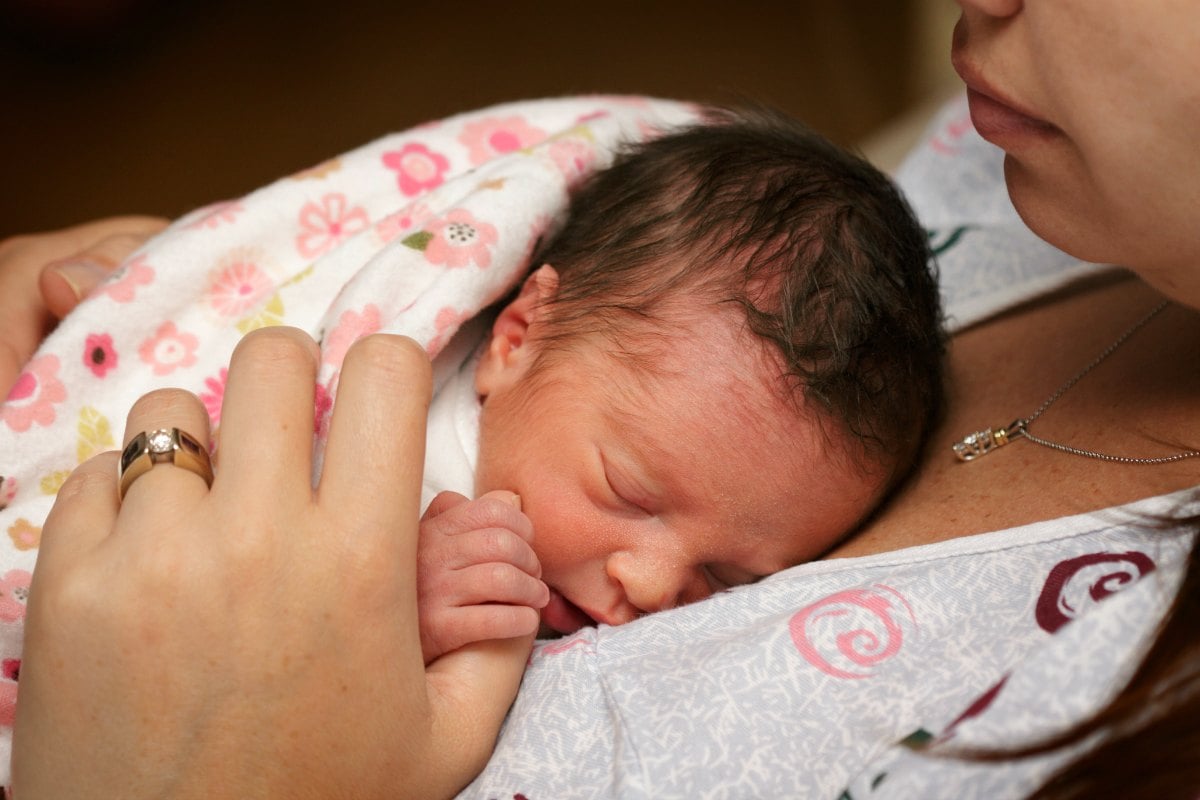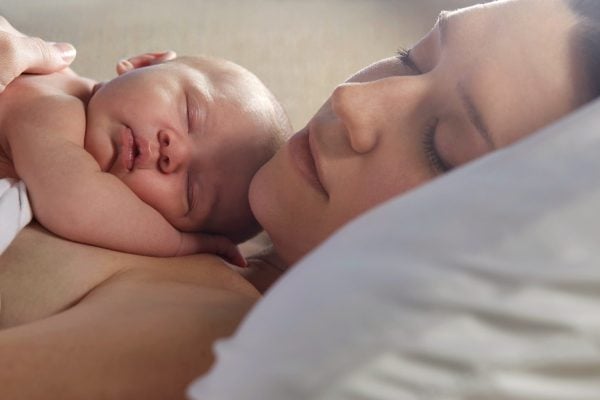
The first few days of my firstborn’s life were spent with me and her father, as well as being introduced to significant family members and friends.
We would all ogle at her, hold her, speak to her and generally just be amazed at this little person who had joined us in the big, wide world. For me as a first-time mother, this time was precious and joyful. My daughter met important people in my life, who would now be an important part of hers.
The first few weeks at home, even with my husband with me, were some of toughest of my life.
This is what your phone would look like if your newborn could text. Post continues below.
Yes, I loved my daughter but I struggled (as many do) immensely with sleep deprivation, post-natal depression and adjusting to my new role as a mother. For me, having my own mum visit us a few times a week was a great support and integral for me in getting through that time.
But there’s a growing trend in parenting where introducing newborns to family and friends or having them visit you at home are a no-go and isolating yourself with your baby is priority. It is called cocooning.
Cocooning is defined as “an intensive time of care” where parents bring their baby home and live in isolation for weeks or even months. They are the “only people to hold, change, feed, touch, kiss, comfort, and play with baby/child.”


Top Comments
This is extremely common in Asian cultures. They call it confinement and during this period they also subscribe to particular foods which is said to help mum get all the nutrients she needs and help her recover fast. It usually lasts a month.
A friend did this with her son and gave all sorts of ridiculous reasons why. She was an adamant anti-vaxxer and so it wasn't because of potential disease. She didn't allow either set of grandparents to touch the child for 6 months. This completely ruined their relationship with their son and daughter-in-law and it has never recovered. 2 years later he left her and had their son secretly vaccinated for everything.